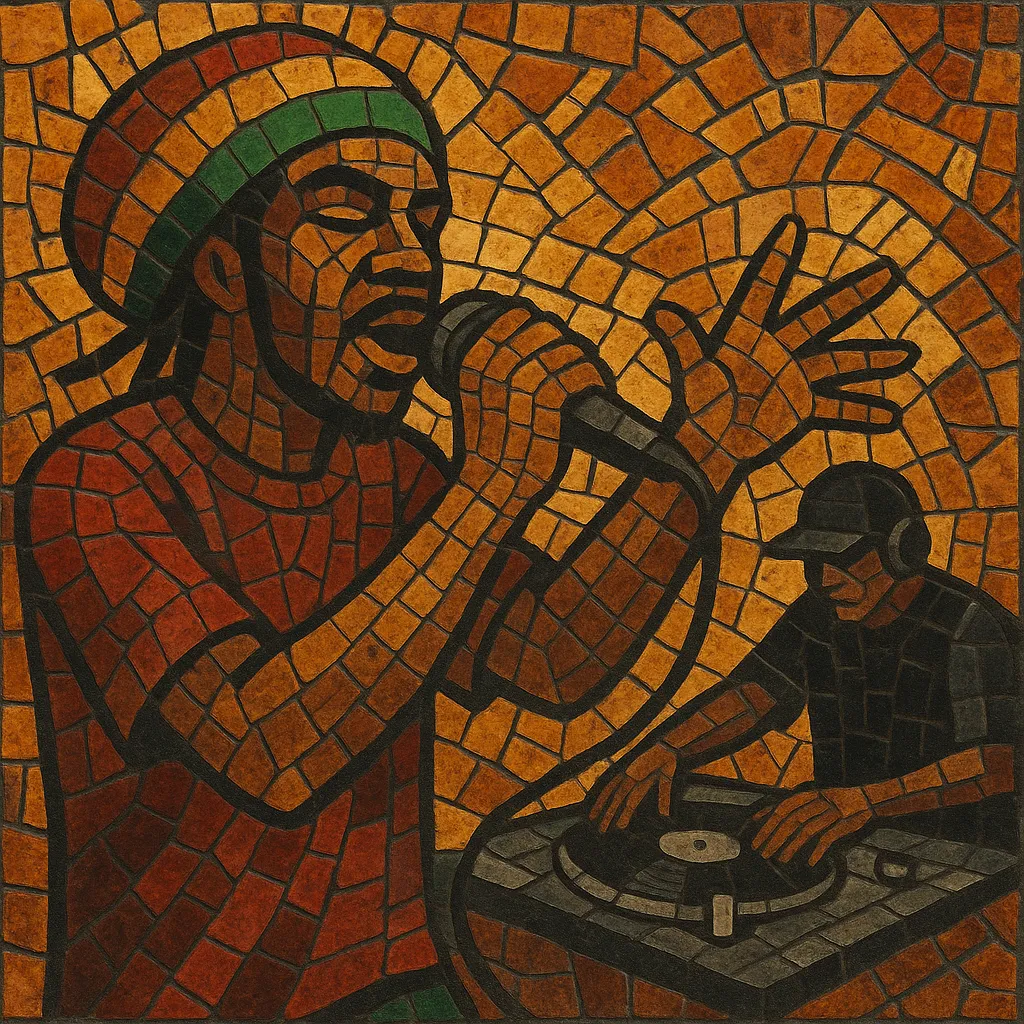
Ragga hip-hop is a hybrid style that merges the patois toasting and digital dancehall sonics of ragga with the beats, rhyme structures, and sampling ethos of hip hop.
Built on heavy sub‑bass, skanking off‑beat chords, and boom‑bap or early 90s East Coast drum programming, the style foregrounds energetic, melodic toasting and rapid‑fire deliveries alongside rap verses. Hooks often use chant‑like refrains or call‑and‑response, borrowing the sound system culture of Jamaica while retaining hip‑hop’s verse–chorus songcraft.
Commercial breakthroughs in the early 1990s brought the sound to mainstream audiences, while parallel UK developments connected ragga hip‑hop to hardcore rave and, soon after, jungle. Its DNA can be heard in later reggae‑pop crossovers and the broader UK rap continuum.
Ragga hip-hop coalesced in the late 1980s among Jamaican and Caribbean diasporic communities in New York and London. As hip hop matured, producers and MCs increasingly absorbed digital dancehall’s timbres and the toasting tradition, itself amplified by the arrival of the fully digital “Sleng Teng” era in mid‑80s Jamaica. Early crossover records and club sets began pairing patois flows with boom‑bap beats, setting the template.
By the early 1990s, the style hit the charts. Artists like Super Cat, Shabba Ranks, Shinehead, and Mad Lion moved fluidly between hip hop and dancehall infrastructures. Key moments included Super Cat’s "Ghetto Red Hot" and pop‑rap remixes, Shabba Ranks’ high‑profile collaborations, Mad Lion’s "Take It Easy" (produced with KRS‑One), and crossover anthems like Snow’s "Informer" and Ini Kamoze’s "Here Comes the Hotstepper." Groups such as Born Jamericans and Fu‑Schnickens showcased rapid, patois‑inflected flows over hip‑hop beats.
In the UK, the same ragga/rap blend intertwined with sound system culture and the hardcore continuum. Artists like Rebel MC (later Congo Natty) bridged ragga hip‑hop with breakbeat rave, paving the way for ragga jungle and influencing jungle broadly. The Ragga Twins and other MCs normalized patois‑driven hype over breakbeats, feeding directly into early jungle’s identity.
Though its commercial apex was the 1990s, ragga hip‑hop’s impact persisted. Reggae‑pop crossovers, UK hip hop, grime’s patois‑inflected delivery, and the broader acceptance of Caribbean cadence in global rap all reflect its footprint. The fusion remains a go‑to vocabulary for energetic party tracks, remixes, and live sound‑system performances.

